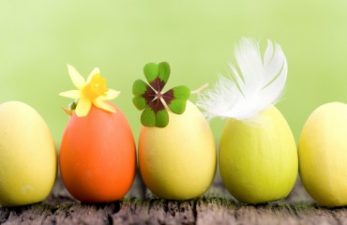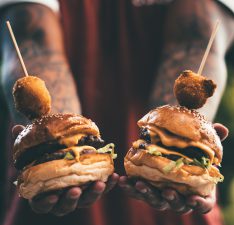It’s a sign of the times: a vegan cheesemaking company in Israel is considering listing on the TASE – or Tel Aviv Stock Exchange. Two meat or animal product substitute companies already list there and now Vgarden, which makes vegan cheese is looking to raise capital. A report in the local paper Haaretz says the kibbutz-based company plans to list next year at a valuation of $102 million.
Israel has more vegans per capita than anywhere in the world. And the company already has dozens of companies looking to offer a plant-based alternative to meat or animal based products.
Yofix in Israel already sells its soy-free yogurt alternative made from oats, legumes and seeds. The fermented, cultured products contain protein, fiber, calcium and iron, have no added sugar or preservatives, and are pre- and probiotic.
Vgarden produces sliced cheese, cream cheese, ricotta, and feta –– all without milk of any kind. And it’s marketed under the brand Mashu Mashu, which means “wow, that’s something” in Hebrew. I have tried the sliced cheese and it’s a satisfying and convincing alternative. It’s firm and tasty and has a cheesy smell and flavor likely from yeast – which the African Israelites have been using as a seasoning for decades. They are an all-vegan village in Beersheva.

The transition to complete veganism hasn’t been difficult for mainstream Israelis because as part of the Jewish lifestyle and dietary laws it is already known if a food product contains traces of animal products as it’s not allowed to eat meat and milk together, for those who observe the customs and traditions known as kashrut.
They are similar to the Muslim dietary laws called halal but are more restrictive – except for one – Jews are allowed to drink alcohol, Muslims are not.
Israelis taking bite out of meat substitute markets
MeaTech in Israel 3-D prints meat alternatives and its shares have risen 120% on the TASE over the last year according to the Marker, an Israeli financial paper. SavorEat is developing a plant-based meat alternative using 3D printing and plant cellulose.
Impossible Burgers have been on the Israeli grocery shelves for a couple of years already. But they cost about $8 a piece, which is more than double the price of a burger bought at a butcher. McDonalds in some locations in Israel is selling vegan burgers and for those observing dietary laws can for the first time order a cheeseburger from the famed fast-food chain.
Redefine Meat from Israel says it is making the world’s first plant-based steak created using 3D printing technology. The Rehovot-based company said it will start testing the beef, which it calls Alt-Steak, at select high-end restaurants in Israel later this year.
Israelis are thrilled with the rollout of Beyond Meat and are clearly trying to take a bite out of this enviable market. Global Opportunity Analysis and Industry Forecast, 2019-2026, “the global meat substitute market size was valued at $4.1 billion in 2017, and is expected to reach $8.1 billion by 2026.”
RilBite is ambitiously positioning itself as the basis for “The burger that saves the world.”
Founded by Barak Melamed and incubated in The Kitchen FoodTech Hub of the Strauss Group in Ashdod, RilBite is developing a “minced plant” product using only six ingredients: onions, tomatoes, textured vegetable protein (TVP) from soy, lentils, rice and spices.
There is Kinoko Tech developing a vegan protein with a meat-like texture and slight umami flavor. The secret ingredient is an edible mushroom tissue called mycelium.
FFW is creating a yeast-based meat alternative. Founder Leonardo Marcovitz says that yeast contains 50% protein and has all the essential amino acids. It’s cheap and easily available. But until now, no one has been able to create a textured product out of yeast or temper its strong umami flavor.
“For the past year, our food technologists have been working on solving those two challenges,” he says. “We’re deciding whether our first product will be in the form of pulled chicken, chicken nuggets or Bolognese.”
Taking on the humble chickpea, a staple of the Middle East diet: InnovoPro and ChickP have developed proprietary technologies for extracting neutral-tasting protein from chickpeas for use in the food industry. Although hummus everywhere unless it’s organic contains high amounts of cancer-causing Roundup.
Sometimes, unless it’s my daughter begging to try a vegan bacon one day, I just have to hope: maybe we should just stop trying to create substitutes? The next generation of vegans won’t hunger for milk, cheese or anything that resembles meat if we educate them properly. Food grown simply from a garden and made into a homemade spread without a printer or complicated enzymes in a lab is really the healthiest and more sustainable way we can consumer our food. These foodtech companies may both help and hinder a meat-free transition. What do you think?




